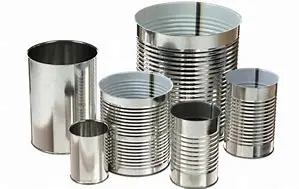

Reference source : Anvisa
In the field of food safety, regulations play a key role in protecting public health and ensuring the integrity of consumables. Recently, Brazil introduced a new regulation, RDC No. 854/2024, which focuses on metallic materials in contact with food.
Scope and Applicability: The new regulation casts a wide net, covering various metallic materials used in the production, transportation and storage of food and raw materials. From packaging to utensils, coatings to equipment, if it's made of metal and interacts with food, it falls under the scope of this regulation.
Key Provisions: At its core, the Regulation emphasizes the importance of ensuring that metallic materials do not pose a risk to human health or compromise the quality of food. Some noteworthy provisions include:
Prevention of Contamination: Metallic materials must not leach harmful substances that could contaminate food.
Preservation of Quality: The materials should not change the composition or sensory characteristics of food in an unacceptable way.
Specific Conditions: Certain exceptions, such as partially varnished or tin-exposed packaging are allowed, under specific conditions.
Integrity Assurance: Various techniques are permitted for the construction of metallic packaging seams to maintain their integrity.
Hermetic Sealing: Metal lids must be hermetically sealed to preserve the freshness of the food.
Recycling: While encouraged, recycling of metallic materials must comply with strict specifications outlined in the regulation.
Permitted Materials: The Regulation provides an extensive list of approved raw materials for the manufacture of metal packaging and equipment. From stainless steel alloys to copper and aluminium, these materials must meet rigorous safety standards.
Limits and Migration Tests: To ensure compliance, strict limits are set for the migration of substances from metallic materials to food. Testing protocols include total migration, specific migration and composition limit tests, all designed to maintain food safety standards.
Importance of Compliance: Compliance with these regulations is not only a legal obligation, but a fundamental responsibility shared by manufacturers, distributors and all stakeholders in the food industry. Meeting these standards is essential to maintaining consumer confidence and protecting public health.
Final Provisions: The new regulation comes into effect on May 2, 2024, with a 180-day grace period for industry players to adapt. It is imperative that companies proactively adapt to these requirements to ensure the safety and quality of their products.
In conclusion, the introduction of RDC No. 854/2024 marks a significant step forward in strengthening food safety standards. By complying with these regulations, stakeholders can maintain the integrity of the food supply chain and protect the well-being of consumers. Compliance is not only a legal necessity but a moral imperative in the pursuit of a safer, healthier food ecosystem.
If you want to access the GHS report, please Register here in GPC Intelligence Portal click here
